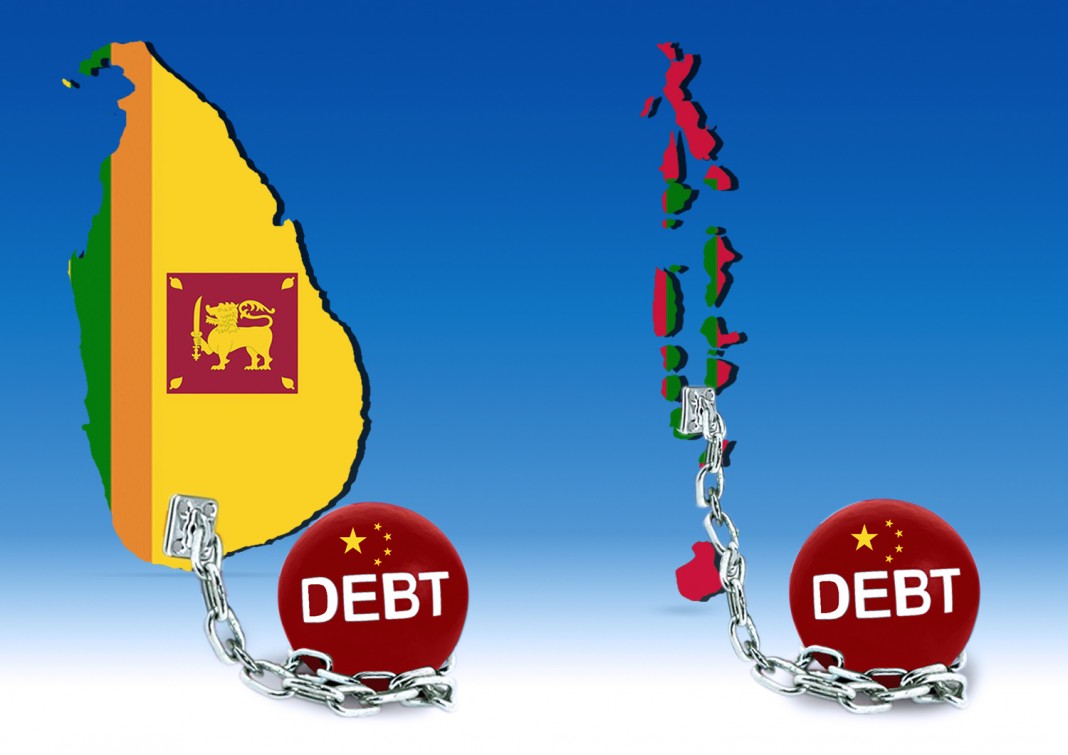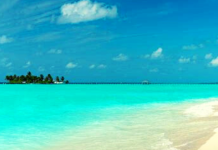China is investing billions of dollars in infrastructure and developments in Maldives. It is good to have friend, if one really want to be friends and help us. But we certainly do not want a wolf in the skin of a goat. This is the truth behind China helping Maldives in development.
China extends loans for infrastructure projects, which is not bad for any country but its the terms & conditions attached with the projects that are of a concern. The lending rates, the period of return and the share in project are all the tools used by China to gain the upper hand. But the projects that China is supporting are often intended not to support the local economy, but to facilitate Chinese access to natural resources, or to open the market for low-cost and shoddy Chinese goods. China even sends its own construction workers, thereby minimizing the number of local jobs that are created. If no local jobs are created then the development is of no use. If no progress of the local people than what use is of such progress of a country.
Few of the projects started by China in few other countries are not just under cloud but is engulfing the whole country. For example, Sri Lanka’s Mattala Rajapaksa International Airport, near Hambantota, does not have any business and almost no revenue from it. Likewise, Hambantota’s Magampura Mahinda Rajapaksa Port remains largely idle, as does the multibillion-dollar Gwadar port in Pakistan. For China, however, these projects are operating exactly as needed: Chinese attack submarines have twice docked at Sri Lankan ports, and two Chinese warships were recently pressed into service for Gwadar port security. These projects were projected to be useful for the native country but the realization of the fact that these projects are in-fact only beneficial to ‘other’ country, so called China.
Sri Lanka is a country that is trapped in the debt-vicious-circle of China. Hambantota was built by a Chinese company and funded by Chinese loans. But now SriLanka is struggling to repay that money, and so has signed an agreement to give a Chinese firm a stake in the port as a way of paying down some of that debt. But now that China looks set to take control of the port, that is a problem it wants to fix and is talking to the government about plans to create a large economic zone – buying 15,000 acres of land to build factories and offices. The island’s total debt stands at $64bn.
About 95% of all government revenues go towards debt repayment of China’s so called ‘help’ for ‘development projects’. All the deals for the Chinese investments in SriLanka was done by the previous Govt. but the agreements are so intangible that the current Govt in SriLanka finds itself incapable of getting out of clutches of China. This means that any wrong doing of the current regimes would result in future repercussions, eroding a bright future for their countrymen.
The more the projects are a failure, the better it gets for China. Because, with no revenues, finally the native country would give into whatever demands of China, due to the crippling debt on them. Not sufficing with this, China is even coming up plans where it owns the major stake of the, so called ‘development projects’, in the country. The country in focus being is Nepal, where China clinched a deal this month to build another largely Chinese-owned dam there, with its state-run China Three Gorges Corporation taking a 75% stake. Not just this, China does not let the borrower country let away from its grip. If they fail to make the re-payments as agreed, then the borrower country is given another deal whereby giving more ‘loans’ for other projects. Thereby, making a vicious circle for the country to get out of the burden of loan of China. Last October, China canceled $90 million of Cambodia’s debt, only to secure major new contracts.
It is also necessary to highlight that how Chinese companies exploited the people of Myanmar. Days before the first supertanker carrying 140,000 tonnes of Chinese-bound crude oil arrived in Myanmar’s Kyauk Pyu port, hundreds of fishermen were banned from fishing a stretch of water near the entry point for a pipeline across Myanmar to southwest China which forms a crucial part of Beijing’s “Belt and Road” project. The pipeline is part of the nearly $10 billion Kyauk Pyu Special Economic Zone. The economic zone faces opposition from activists and residents who criticized the tender process and said the development would have a negative impact on local people. Around 20,000 people are at risk of losing their homes and livelihoods due to land acquisition for the zone. Most of whom now depend on agriculture and fishing, are at risk of being relocated to make way for the project.
When Reuters spoke to several villagers in Kyauk Pyu, they fear the project would not contribute to the development of the area because the operating companies employ mostly Chinese workers. From more than 3,000 people living on the Maday island, the entry point for the oil pipeline, only 47 have landed a job with the Petrochina, while the number of Chinese workers stood at more than double that number. This project has landed the locals of Myanmar in a dilemma to save their livelihoods.
The position of Maldives does not seems good anyways. Currently it is country number 143 in the list of debt to GDP and 129 in debt per capita, out of the 185 . Recently, World Bank and IMF repeatedly warned that Maldives could be piling up excessive debt that could exceed 120% of the GDP in three years. World Bank Group has reiterated its warning to the Maldives of negative repercussions to the nation’s economy by increasing debts stemming from the hefty loans taken for ongoing development projects.
China loves to invest in countries which are ‘tinpot democracies’ and where politicians are corrupt – the more the better . China is clever in playing this game. They just have to handle the ruling elites, and everything will fall into place. Our future generations will have to pay off the billion of ringlets of debt. If this not stopped then Maldives will turn into a Chinese colony.
Related links- China’s $10 billion strategic project in Myanmar sparks local ire
Sri Lanka: A country trapped in debt


















